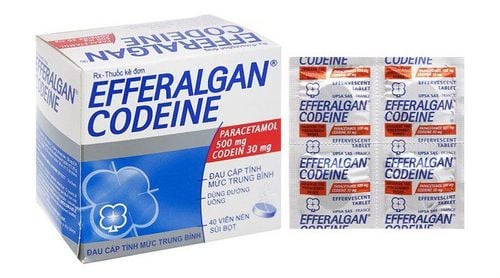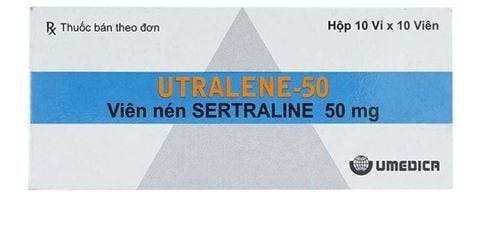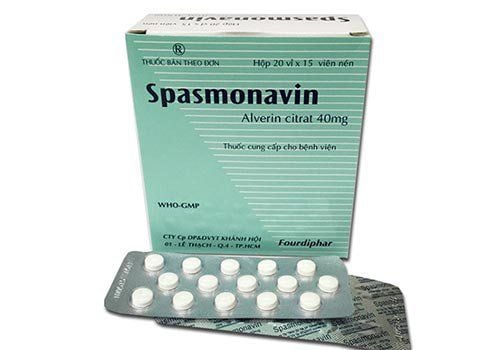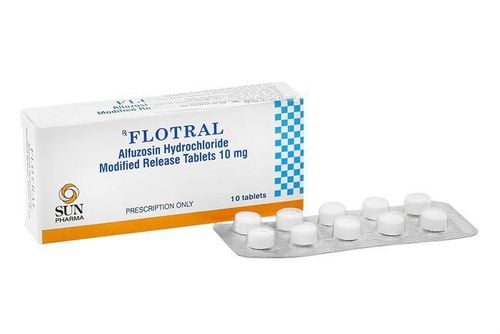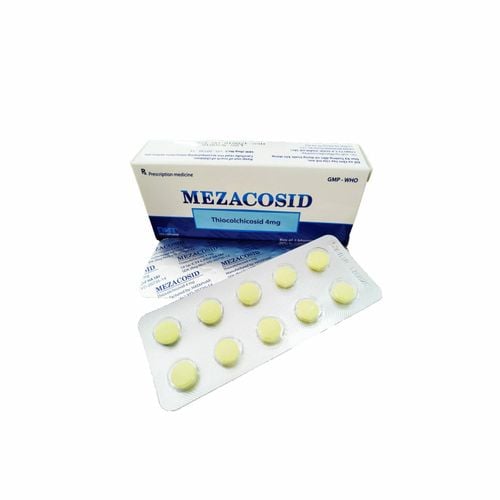This is an automatically translated article.
Mephespa is a muscle relaxant and muscle relaxant and is available in the form of film-coated tablets. The main ingredients of Mephespa include Mephenensin, which is indicated in the treatment of diseases related to spinal degeneration. However, Mephespa can cause unwanted side effects such as fatigue, drowsiness,... Let's find out what Mephespa does and what effect it has through the article below.1. Mephespa mechanism of action
Mephespa's main ingredient is Mephenensin, a centrally acting muscle relaxant. The drug causes mild spasmodic and sedation by the mechanism of neuromuscular blockade with systemic effects and even effects at the site of drug exposure. However, the drug may be limited due to the short duration of drug action.Mepheshop drug after being taken into the body, mephenesin compounds are absorbed very quickly. And the maximum concentration in the blood is reached 1 hour later. The half-life of Mepheshop is about 3/4 hours. Mephenesin compounds are extensively metabolised and eliminated mainly in the urine.
2. Indications and contraindications for the use of Mephespa
Mepheshop is indicated in the supportive treatment of muscle spasms causing pain in diseases related to spondylosis and spinal posture disorders with curvature of the neck, back pain, low back pain. In addition, the drug Mepheshop is also indicated in the treatment of spasmodic conditions.However, Mepheshop is also contraindicated in cases of hypersensitivity to the ingredients of the drug. Or cases of disorders of porphyrin metabolism.
3. Dosage and how to use Mephespa
Mephespa is used for adults and children over 15 years old. The recommended dose of Mephespa for each use is 2 to 4 tablets, and 3 times a day is equivalent to 6 to 12 tablets or 250mg per day.Note: The recommended dose of Mephespa is for reference only. Therefore, before using the drug, the patient should follow the doctor's instructions.
4. Management of missed dose and overdose Mephespa
If you forget a dose of Mephespa, take it as soon as you remember. However, if the interval between the missed dose and the next dose is too close, skip the missed dose. Patients should not use a double dose of Mephespa, because it can cause an overdose. To overcome the situation of missing a dose of Mephespa, patients can set an alarm or ask a loved one to remind them.In case of accidental overdose of the drug than prescribed and some unwanted signs appear, and seek emergency care immediately.
5. Side effects when using Mephespa
Mephespa may cause some unwanted side effects during treatment. However, with each case of Mephespa side effects can occur in varying degrees from mild to severe.Some common side effects caused by Mephespa include: Fatigue, drowsiness, lethargy, muscle weakness, body aches, nausea, diarrhea, constipation,... These side effects may occur. occurs at the start of treatment or after an increase in the dose of Mephespa. Usually, side effects from Mephespa can be transient or subside over time.
However, in some cases the drug can cause serious unwanted side effects with rare reactions. These reactions may appear within minutes of using Mephespa or longer within a few days. When serious side effects appear such as: Shortness of breath, joint pain, anaphylaxis, somnolence, rash, rash, ... the patient should stop using the drug and go to a medical facility for support. medical care immediately.
Some notes during the use of Mephespa:
For pregnant and lactating women, caution should be exercised when using Mephespa. Patients should be advised to use Mephespa from their doctor, and carefully analyze the benefits and risks before using the drug. Mephespa may change how it works and increase its side effects. Therefore, to avoid Mephespa drug interactions, patients should provide their doctors with a list of previously used drugs, including prescription and non-prescription drugs, herbs,... Allergic-related diseases, bronchial asthma, allergic reactions to drugs, especially aspirin, should be noted when using Mephespa. Concomitant use of alcohol with drugs that inhibit the central nervous system can cause adverse effects. Side effects of medications increase the risk. Because the drug can make users drowsy and can impair coordination with movements, people using Mephespa should not drive or operate machinery. In the treatment of drug overdose, clinical symptoms of hypotonia, hypotension, visual disturbances, somnolence, loss of coordination, hallucinations, and respiratory paralysis are common. Above is important information about Mephespa drug, patients should carefully read the instructions for use and use according to the dose prescribed by the doctor to achieve the best effect.




